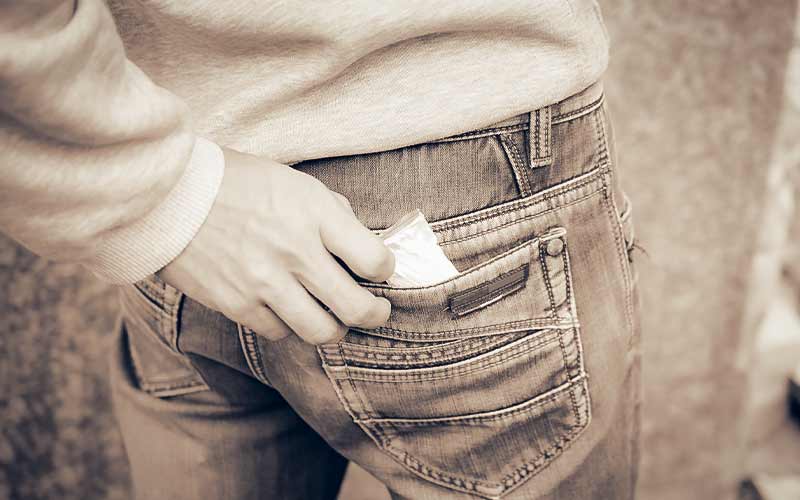Teenagers use drugs for a handful of different reasons. We want to give you clear information to guide you through this issue which can be of great concern to parents of teens.
We also offer some practical tips to help you guide your teen away from potential drug use.
It’s not all that uncommon for teenagers to experiment with different substances, but it’s still a cause for concern, especially when they’re trying the more dangerous types of drugs or they’re using them on a regular basis.
As a parent, it can be difficult. You want to give your teen some room to be a teenager, but you don’t want to stand by and watch them go down a dark path from which they struggle to return.
Trying to balance all of this while also maintaining a good relationship with your teenager and open communication is difficult, but it’s important. You want them to trust you, to be able to come to you with things, and not to try to hide everything from you because if they end up falling too deep, and having legitimate problems that they need help with, you want them to know they can come to you.
You don’t want your teenager to be too afraid to talk to you about drugs or other substances. You’re wondering why do teens use drugs, and it’s a valid concern. Here’s what you need to know as a parent, caretaker, guardian, or a concerned friend.
Why Do Young People Use Drugs?

The main reason teens consider using drugs is simply to fit in with their peers. They may feel pressured to try something that their friends are doing, or your teenager may have moved into a new social circle that includes recreational drug users.
While that’s a common reason for teens to try drugs in the first place, once they try them, they may find that it helps them with stress or helps them to cope with some sort of trauma, if even for a few moments.
Your children probably won’t have developed all of their coping skills for teens yet, so if there’s something going on in their life (struggling in school, a divorce, being bullied, feeling outcast, lacking a plan for their life, etc) then they may find relief in the form of substances.
So, what happens is they’ll try something out, they’ll think it’s actually working, and then they’ll keep using it and that’s where things can really spiral out of control.
Is Drug Use a Sign of Teenage Rebellion?
Yes, drug use can be a way for your teen to experiment with their newfound independence. They may feel like using drugs is a way of expressing themselves now that they are older and to feel more grown up.
It’s a taboo thing that they’ve been warned about their entire lives, and then if they see their peers using drugs or people in pop culture and they get the impression that it’s not a big deal, they can feel like the harm and dangers of drugs have been over-exaggerated and this can cause someone to lean into the teenage rebellion aspect even further.
More Social Reasons For Teenage Drug Use
Teens often feel bored, so experimenting with drugs is often seen by them as an exciting way to relieve their boredom. They are also seeking ways to satisfy their curiosity about the world. As drugs are such a taboo topic, they are perhaps more likely to be drawn to trying them out.
Drug Use and How Teens Feel
Being a teenager can be challenging, which is why some teens turn to drug use as they think it will make them feel relaxed, forget their troubles and ease any physical or emotional pain they are experiencing.
Even the most well-adjusted teenagers can feel bad at times, even if their lives seem perfect and they have everything they need. A loving family, success at school, a great friend group… even in the best of circumstances, some teens will experiment.
Now, imagine a teenager who lacks stability at home, isn’t excelling in their studies, has a rougher friend group, or is dealing with traumatic events from the past or even in the present. If the kids with the best lives, on paper, can succumb to experimenting with drugs, then teenagers in worse situations need a lot of extra support and guidance from a trusted adult.
Risk Factors for Teen Drug Use
Teenagers are far more likely to consider using drugs if they suffer from low self esteem or have been a victim of bullying. Teens who have low grades in school, or fail school, are more likely drawn to drug use. Young people with parents or older siblings who use drugs are far more likely to use drugs themselves.
- Low self esteem, lack of confidence
- Feeling like they aren’t useful or can’t contribute
- Struggling with trauma
- Lacking coping mechanisms to deal with life
- Older siblings who use drugs
- Low grades, performing poorly in school
- Victims of bullying, kids who feel outcast
- Lacking a strong friend group
Effects of Teenage Drug Use
Using drugs has many short and long-term effects on teenagers.
Parents must be aware of these so that they can have open conversations with their teens about drug use and its impact. If teenagers feel there is little risk in using drugs, then they are far more likely to try them.
Being honest with your teenager is far more likely to help them than closing down conversations about drugs and their effects.
If they feel like they’re being dishonest with them, they’ll just go on the internet and find endless amounts of anonymous people online who will give them information that’s skewed and bias in the other direction, except they’ll listen to those people because they already feel like you’ve broken their trust so some degree.
Physical and Mental Effects on Teens
Drug use can cause many short and long-term physical, mental and emotional effects on teens. Teenage substance abusers are at higher risk than nonusers of depression, behavioral issues, personality disorders, suicidal thoughts, attempted suicide and death by suicide. Drug use can also cause nausea, abdominal pain, liver function problems, lung issues, seizures and even brain damage.
How Can I Support My Teen?
You can offer support to your teenager about drug use and its effects in many ways.
You should try to talk openly and regularly with your child about the risks of drug use. Encourage your teen to be active in sports, faith-based or school clubs, or other hobbies that can occupy their time and introduce them to people who don’t use drugs as their hobby.
Promote high self-esteem and praise your teen for their achievements whenever you can. Finally, aim to facilitate your teenager spending time with a variety of positive role models.
Simply being a parent who is concerned about these types of things is a pretty good indicator that they’ll be able to make it through their teenager years relatively unharmed in regards to these types of things.
It’s about finding the balance between being overbearing and pushing them away from you, but also being active in their lives and knowing what’s going on. Taking the time to understand why teenagers use drugs is a great start.
More articles to help you:
